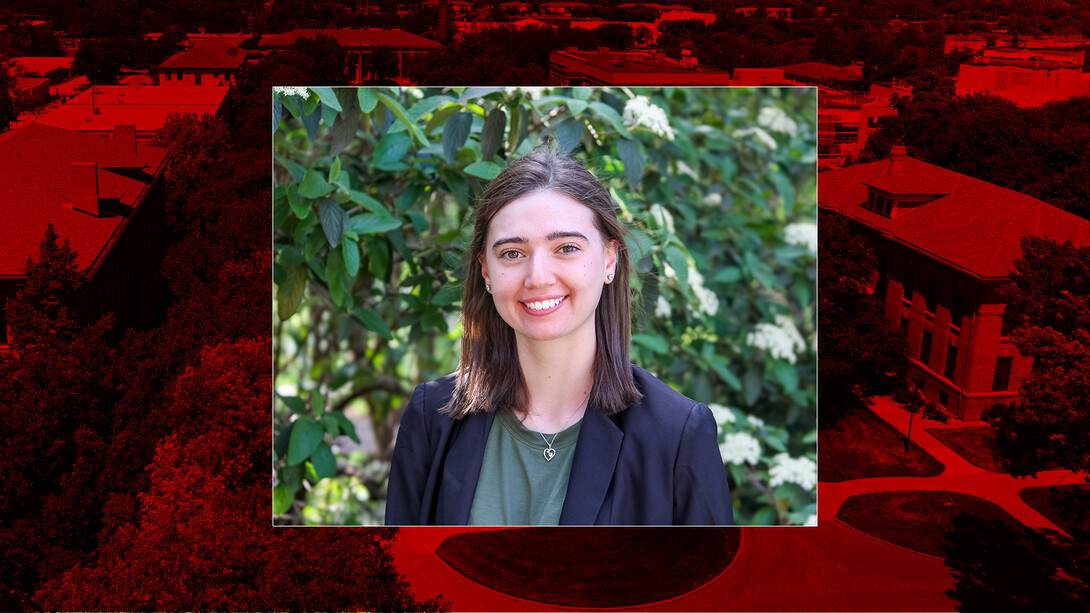
Lincoln, Neb. — How will you change the world? This was a question I pondered as I was preparing my quick pitch video for the CASNR Change Maker Competition as a senior in high school. After some brainstorming, I landed on the idea of increasing the involvement of groups that have been historically underrepresented in agriculture. In Nebraska, one of four jobs is related to agriculture and natural resources. In order to meet growing workforce demands, our agriculture industry will need to recruit beyond the traditional pool of young people who have grown up around crops and livestock. In my original pitch, I suggested highlighting stories of underrepresented groups working in agriculture through various media outlets to increase their visibility in agriculture.
When I got the email that I was a recipient of the Change Maker Scholarship Award and accepted into the program, I was ecstatic. This award solidified my decision to attend the University of Nebraska-Lincoln. I could not wait to see what the program had to offer and what impact my project could have.
In the years since, my idea has evolved, though the mission of my work remains the same. This fall, I will host a workshop titled “Increasing Ethnic Diversity in Agriculture through Involvement in FFA” for Nebraska agricultural educators.
The Tough Question and Research
I spent the first two years in the program researching the topic of underrepresented groups’ involvement in agriculture and trying to figure out how to bring my idea to life. Early on, my mentor, Dr. Fagan, would ask me, “Why does this matter to you?” I always knew it was important to include people from different backgrounds, and having a variety of cultural representations increases creativity, collaboration, and productivity. I had never experienced prejudice nor witnessed it very often. It was not until later in my project that I developed a more personal connection to the project.
In my research, I interviewed various programs at UNL such as MANRRS, Cultivate ACCESS, and FEWSS to see what they were doing to increase ethnic involvement in agriculture. I also interviewed a few students in CASNR who were involved in the previously mentioned programs and FFA. Additionally, I read relevant articles and books to increase my understanding of populations who differ from me.
I started finding a lot of commonalities between my interviews. Most notably, all of my research kept pointing me back to FFA, as many of the groups mentioned above included former FFA members.
FFA is an organization very near and dear to me. FFA helped me find my passion for agriculture and grow my leadership and professional skills. In my research, though, I learned that not all FFA members shared my experience. Some felt alienated or unvalued. It broke my heart to hear that some people experienced prejudice because of their skin color while in FFA. This ended up being my personal connection. Increasing involvement and belongingness in agriculture is important to me because I want agriculture to be a place where everyone feels welcome. FFA is a great safe space to establish this.
From Idea to Reality
After the research phase was over, I started to have a clear vision of how my project could come to life. Simply increasing their representation in the media was not going to be enough. I needed to narrow my project to a specific group, FFA.
Now the big question was how to reach such a large group. I realized that if I held a workshop for Nebraska FFA advisors, I could reach a large group of students.
Since this epiphany, I have been working on planning the workshop which will take place in the fall of 2024. My current objectives are that 1) educators will leave the workshop with the knowledge and resources for connecting with students from underrepresented backgrounds and increasing their participation in the ag classroom/FFA, and 2) educators will leave the workshop with the knowledge and resources for handling situations involving culture-based prejudice.
As I continue with this project, I have been blessed with countless connections not only in CASNR but also with the Nebraska FFA Foundation. Having support outside of the Change Maker program has encouraged me to work harder on this project and inspired me to believe in this workshop’s potential.







